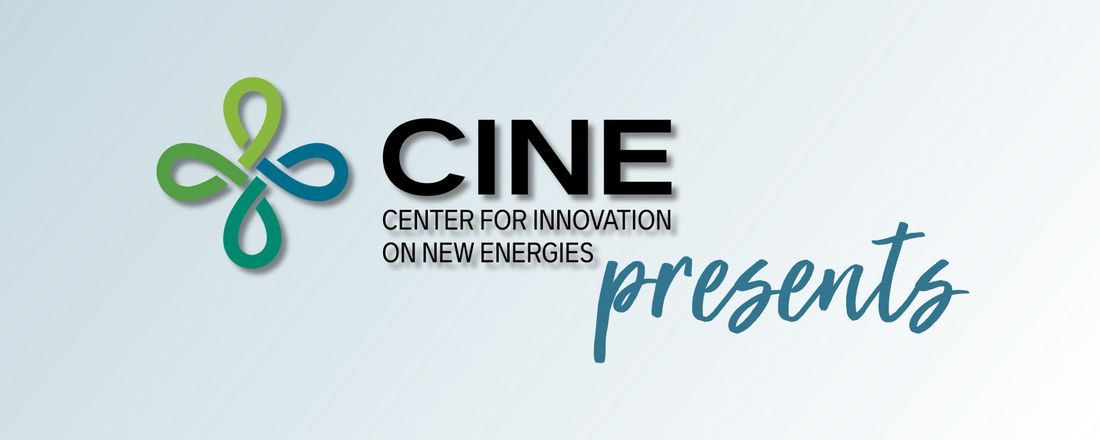

This is an online event
Challenges in the development of catalysts for water oxidation reaction under mild conditions
Prof. Juliano Alves Bonacin
Institute of chemistry – University of Campinas – UNICAMP
jbonacin@unicamp.br – www.bonacin.iqm.unicamp.br
The development of renewable and clean sources of energy as an alternative to fossil fuels is one of the biggest challenges of our society. The expansion of the energy matrix using fossil-based fuels can lead to the collapse of the planet. Based on this scenario, it is indispensable to use hydrogen as an alternative source of energy1.
The hydrogen can be produced from the water through the water splitting (WS) process which can be defined as the decomposition of water into O2 and H2. Nowadays, this theme one of the most important research topics in chemistry. The WS limitation is the production of O2 at the anode because it is the most energy-demanding step in the overall process. The water oxidation reaction is both thermodynamically (E0 = -1.229 V vs NHE) and kinetically demanding, and so requires a catalyst to be viable. The challenges in the development of new catalysts for water oxidation are: i) obtaining materials that operate at low overpotential and mild conditions; ii) composition based on Earth-abundant elements; iii) high stability and robustness and iv) understanding of water oxidation reaction mechanisms to develop new catalysts2.
In view of that, the lecture will address the challenges in the development of catalysts for water oxidation reaction under mild conditions. Studies of water oxidation at neutral pH allow the exploration the new technologies as the introduction of additive manufacturing3 through the 3D printing electrodes and remarkable catalysts like Cobalt-Prussian blue analogues4.
References
1 O. Lenz, Nat. Energy, 2020, 5, 426–427.
2 P. J. Zambiazi, G. de O. Aparecido, T. V. de B. Ferraz, W. S. J. Skinner, R. G. Yoshimura, D. E. B. Moreira, R. L. Germscheidt, L. L. Nascimento, A. O. T. Patrocinio, A. L. B. Formiga and J. A. Bonacin, Dalton Trans., 2020, 49, 16488–16497.
3 J. P. Hughes, P. L. dos Santos, M. P. Down, C. W. Foster, J. A. Bonacin, E. M. Keefe, S. J. Rowley-Neale and C. E. Banks, Sustain. Energy Fuels, 2020, 4, 302–311.
4 B. M. Pires, P. L. dos Santos, V. Katic, S. Strohauer, R. Landers, A. L. B. Formiga and J. A. Bonacin, Dalton Trans., 2019, 48, 4811–4822.

Prof. Juliano Alves Bonacin
Institute of chemistry – University of Campinas –
Unicamp
Graduou-se em Química pela Universidade Estadual de Maringá (UEM) em 2002. Concluiu o doutorado e o pós-doutorado em Química Inorgânica na Universidade de São Paulo (USP) em 2007 e 2009, respectivamente. De 2009 a 2012 foi diretor de P&D e sócio co-fundador da empresa NovaNano. Durante esse período, foi membro de Fórum de Competitividade em Nanotecnologia do Ministério do Desenvolvimento, Indústria e Comércio Exterior (2009/2010). No mesmo período, desenvolveu uma nova tecnologia para produção de nanopartículas de prata e realizou o processo de transferência tecnológica para outra empresa do setor. Ingressou no IQ-UNICAMP em 2012 e obteve o título de Livre Docente em 2019. Ministra disciplinas relacionadas a Química Inorgânica no Curso de Graduação e Pós-Graduação, e Empreendedorismo. Foi Coordenador da Comissão de Segurança e Ética Ambiental do IQ-Unicamp (2013/2015) e Coordenador da Central Analítica do IQ-UNICAMP (abril/2015 a Jul/2018). Coordenou projetos financiados pelo SENAI, CNPq, FINEP e FAPESP. É revisor das seguintes agências de fomento: Fundação de Amparo à Pesquisa do Estado de São Paulo (FAPESP), Fundação de Amparo à Ciência e Tecnologia do Estado de Pernambuco (FACEPE), Fundação de Apoio e Desenvolvimento do Ensino, Ciência e Tecnologia do MS (Fundect). Atualmente, atua como revisor de 27 revistas científicas de âmbito nacional e internacional. Foi Visiting Researcher na University of Ottawa (2012/2013 - Pós-Doutorado) e na Manchester Metropolitan University (2017). Possui 69 artigos publicados, índice H=24 (Google Scholar) e 6 patentes depositadas. Orientou 4 projetos de mestrado, 4 doutorados, 1 pós-doutorado, 24 alunos de IC, 9 alunos de intercâmbio, dos quais 7 vieram de universidades do exterior. Atualmente orienta 2 projetos de pós-doutorado, 4 doutorados, 6 mestrado e 5 de Iniciação Científica. Já ministrou 54 palestras científicas em Instituições de Ensino e Pesquisa. Seu grupo de pesquisa desenvolve projetos em water splitting, produção de hidrogênio, estudos de reações de desprendimento de oxigênio (oxidação de água), nanomateriais para eletrocatálise e sensores eletroquímicos.
{{'Label_DoacaoAPartir' | translate}} {{item.valores[0].valor | currency:viewModel.evento.moeda}}
{{item.descricao}}{{entrada.valorComDesconto | currency:viewModel.evento.moeda}}
